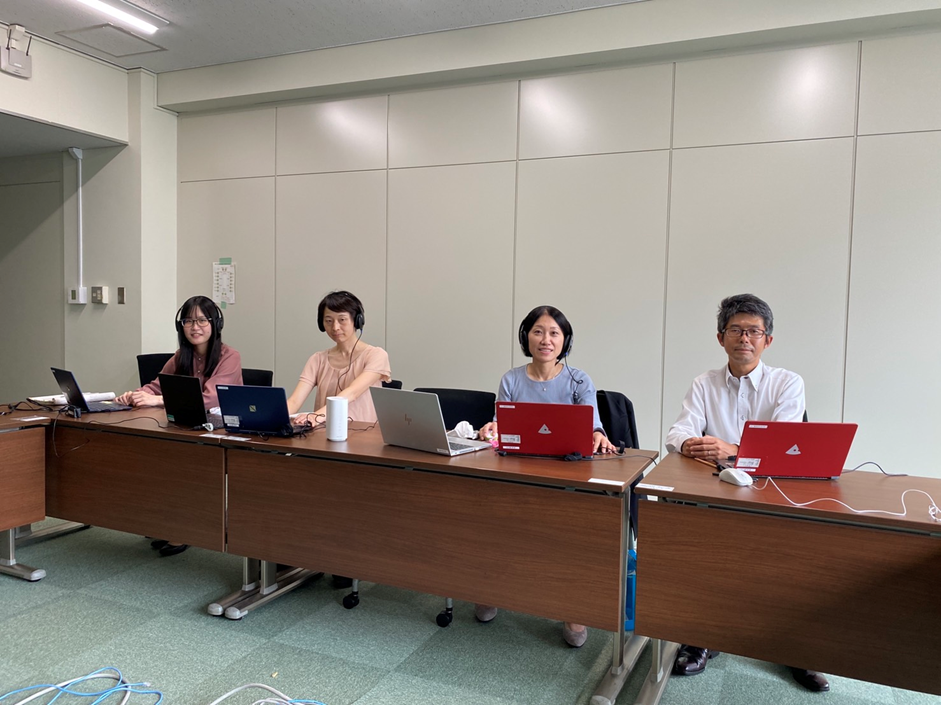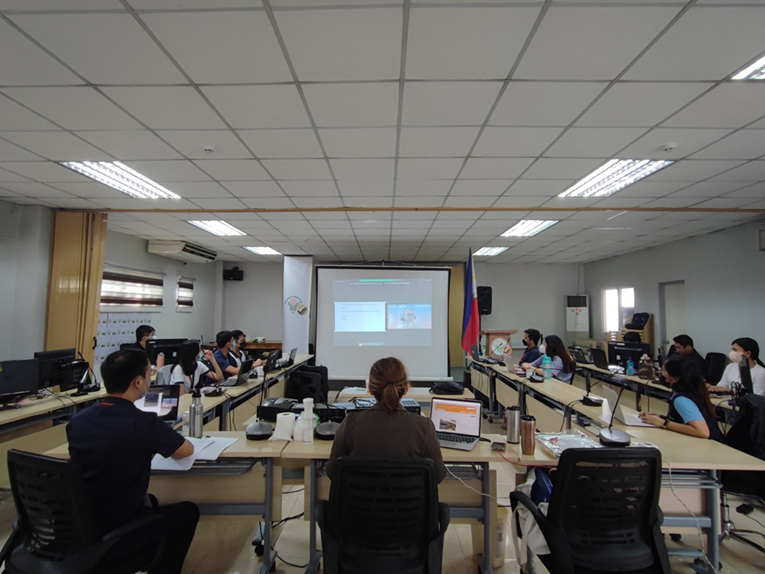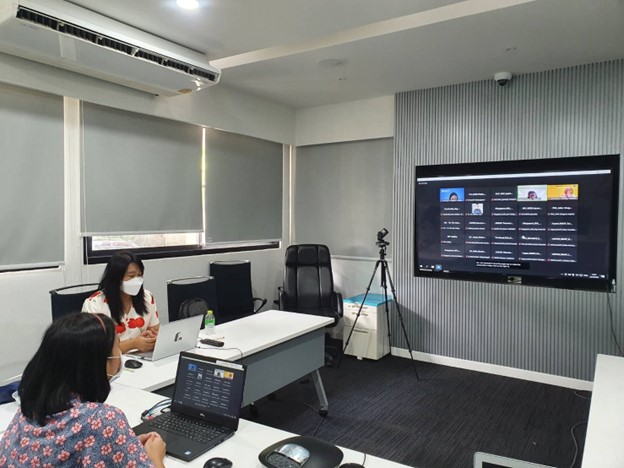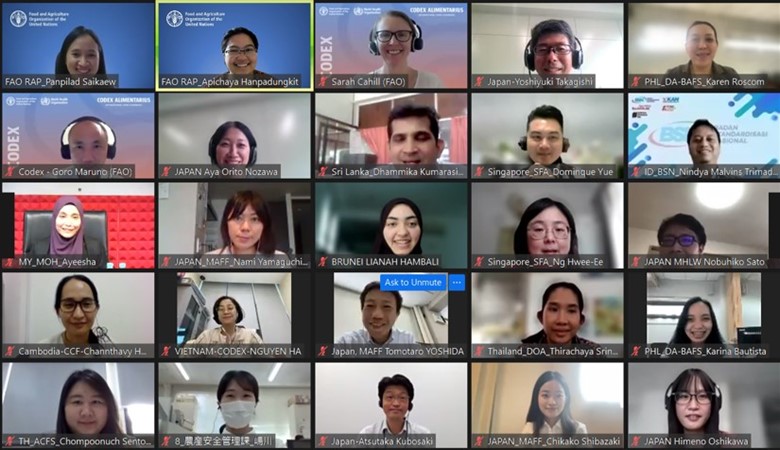Regional workshop in Asia strengthening capacity for enhanced participation in Codex
To strengthen capacity for better and more effective participation in Codex work for selected Asian countries, the Food and Agriculture Organization of the United Nations (FAO), organized a virtual regional workshop on “Enhancing Effective Participation in Codex Activities” from 20 to 22 September 2022. The workshop is part of a wider five-year programme sponsored by the Ministry of Agriculture, Forestry and Fisheries of Japan (MAFF) which enhances Capacity in Codex for Effective Participation and Contribution of Selected Countries in Asia.
A total of 45 officials in charge of food safety from 12 Asian Countries (Brunei Darussalam, Cambodia, Indonesia, Japan, Lao PDR, Malaysia, the Philippines, Singapore, Sri Lanka, Thailand, Timor-Leste, and Viet Nam) participated in the workshop which was facilitated by FAO officers from the Regional Office for Asia and the Pacific.

Participants connecting from Japan
Sridhar Dharmapuri, Senior Food Safety and Nutrition Officer and Project Lead Technical Officer in the region welcomed participants and Akihito Furuta, Director for International Affairs Office, Food Safety Policy Division, Food Safety and Consumer Affairs Bureau, MAFF, gave opening remarks.
Raj Rajasekar, Vice Chairperson of the Codex Alimentarius Commission set the scene with a presentation on the overview of the Commission and its importance. He pointed out that “effective participation in Codex is not only about attending the Codex meetings and contributing to international standards developing but also strengthening capacity for implementing Codex texts at national level.”

Participants connecting from the Philippines

Participants connecting from Thailand
Sarah Cahill, Senior Food Standards Officer, Codex Secretariat, explained how risk analysis is applied in the process of elaboration of Codex texts. Risk managers (the Commission and its subsidiary bodies) and risk assessors (the FAO/WHO expert bodies and consultations) function separately. Risk communication is applied to every step in the risk analysis. The principles of risk analysis have been established and published in the Codex Procedural Manual.
Angeliki Vlachou, Food Safety Officer, FAO detailed the roles of FAO/WHO in providing scientific advice and was followed by Goro Maruno, Food Standards Officer, Codex Secretariat who explained how Codex elaborates texts.

Participants connecting online had an opportunity to understand the structure and functions of Codex and its importance, the Codex standard-setting process, and risk analysis in the framework of Codex.
“This workshop was very valuable for me to get a deeper understanding of Codex. I had sometimes experienced confusion about the Step procedure for elaborating Codex texts, but thanks to this workshop, I was able to clearly understand it. I would like to make use of what I learned from this workshop for my Codex work,” said Ms. Himeno Oshikawa, MAFF.
Ms. Nami Yamaguchi, MAFF, said: “Participating in the workshop was very beneficial for me. I deepened my understanding of the background of Codex, and the importance of participating in Codex meetings and submitting data for risk analysis. I'd like to make use of what I learned in the workshop for active participation in the next Codex meeting.”
The workshop also provided a forum for participants to hear from Japan, Malaysia, and Singapore on their national Codex structures and how to formulate national positions ahead of attending Codex meetings. It was recognized that the consultative mechanism can vary from country to country depending on circumstances. Collaboration between relevant stakeholders is essential for formulating representative national positions.
Learn more
FAO Regional Office for Asia and the Pacific
FAO Publication: Japan and the Association of Southeast Asian Nations (ASEAN)
Photo credit: ©FAO and Dominique Salcedo
At the heart of the Codex mandate are the core values of collaboration, inclusiveness, consensus building and transparency. Governmental and non-governmental, public and private organizations alike play a vital role in ensuring Codex texts are of the highest quality and based on sound science.
Codex would have little authority in the field of international standard setting if it did not welcome and acknowledge the valuable contributions made by observers. Expert technical bodies, industry and consumer associations
contribute to the standard-setting process in a spirit of openness, collaboration and transparency.
Intergovernmental organizations (IGOs) and international non-governmental organizations (NGOs) can apply for observer status in Codex in order to attend and put forward their views at every stage of the standard-setting process.
 Current Codex Alimentarius Commission
Current Codex Alimentarius Commission
Regional workshop in Asia strengthening capacity for enhanced participation in Codex
To strengthen capacity for better and more effective participation in Codex work for selected Asian countries, the Food and Agriculture Organization of the United Nations (FAO), organized a virtual regional workshop on “Enhancing Effective Participation in Codex Activities” from 20 to 22 September 2022. The workshop is part of a wider five-year programme sponsored by the Ministry of Agriculture, Forestry and Fisheries of Japan (MAFF) which enhances Capacity in Codex for Effective Participation and Contribution of Selected Countries in Asia.
A total of 45 officials in charge of food safety from 12 Asian Countries (Brunei Darussalam, Cambodia, Indonesia, Japan, Lao PDR, Malaysia, the Philippines, Singapore, Sri Lanka, Thailand, Timor-Leste, and Viet Nam) participated in the workshop which was facilitated by FAO officers from the Regional Office for Asia and the Pacific.

Participants connecting from Japan
Sridhar Dharmapuri, Senior Food Safety and Nutrition Officer and Project Lead Technical Officer in the region welcomed participants and Akihito Furuta, Director for International Affairs Office, Food Safety Policy Division, Food Safety and Consumer Affairs Bureau, MAFF, gave opening remarks.
Raj Rajasekar, Vice Chairperson of the Codex Alimentarius Commission set the scene with a presentation on the overview of the Commission and its importance. He pointed out that “effective participation in Codex is not only about attending the Codex meetings and contributing to international standards developing but also strengthening capacity for implementing Codex texts at national level.”

Participants connecting from the Philippines

Participants connecting from Thailand
Sarah Cahill, Senior Food Standards Officer, Codex Secretariat, explained how risk analysis is applied in the process of elaboration of Codex texts. Risk managers (the Commission and its subsidiary bodies) and risk assessors (the FAO/WHO expert bodies and consultations) function separately. Risk communication is applied to every step in the risk analysis. The principles of risk analysis have been established and published in the Codex Procedural Manual.
Angeliki Vlachou, Food Safety Officer, FAO detailed the roles of FAO/WHO in providing scientific advice and was followed by Goro Maruno, Food Standards Officer, Codex Secretariat who explained how Codex elaborates texts.

Participants connecting online had an opportunity to understand the structure and functions of Codex and its importance, the Codex standard-setting process, and risk analysis in the framework of Codex.
“This workshop was very valuable for me to get a deeper understanding of Codex. I had sometimes experienced confusion about the Step procedure for elaborating Codex texts, but thanks to this workshop, I was able to clearly understand it. I would like to make use of what I learned from this workshop for my Codex work,” said Ms. Himeno Oshikawa, MAFF.
Ms. Nami Yamaguchi, MAFF, said: “Participating in the workshop was very beneficial for me. I deepened my understanding of the background of Codex, and the importance of participating in Codex meetings and submitting data for risk analysis. I'd like to make use of what I learned in the workshop for active participation in the next Codex meeting.”
The workshop also provided a forum for participants to hear from Japan, Malaysia, and Singapore on their national Codex structures and how to formulate national positions ahead of attending Codex meetings. It was recognized that the consultative mechanism can vary from country to country depending on circumstances. Collaboration between relevant stakeholders is essential for formulating representative national positions.
Learn more
FAO Regional Office for Asia and the Pacific
FAO Publication: Japan and the Association of Southeast Asian Nations (ASEAN)
Photo credit: ©FAO and Dominique Salcedo
 Codex and Observer
Codex and Observer
around the world since ancient times.
We might not always know where it comes from,
but we expect it to be available, safe and of good quality.









Leave a comment